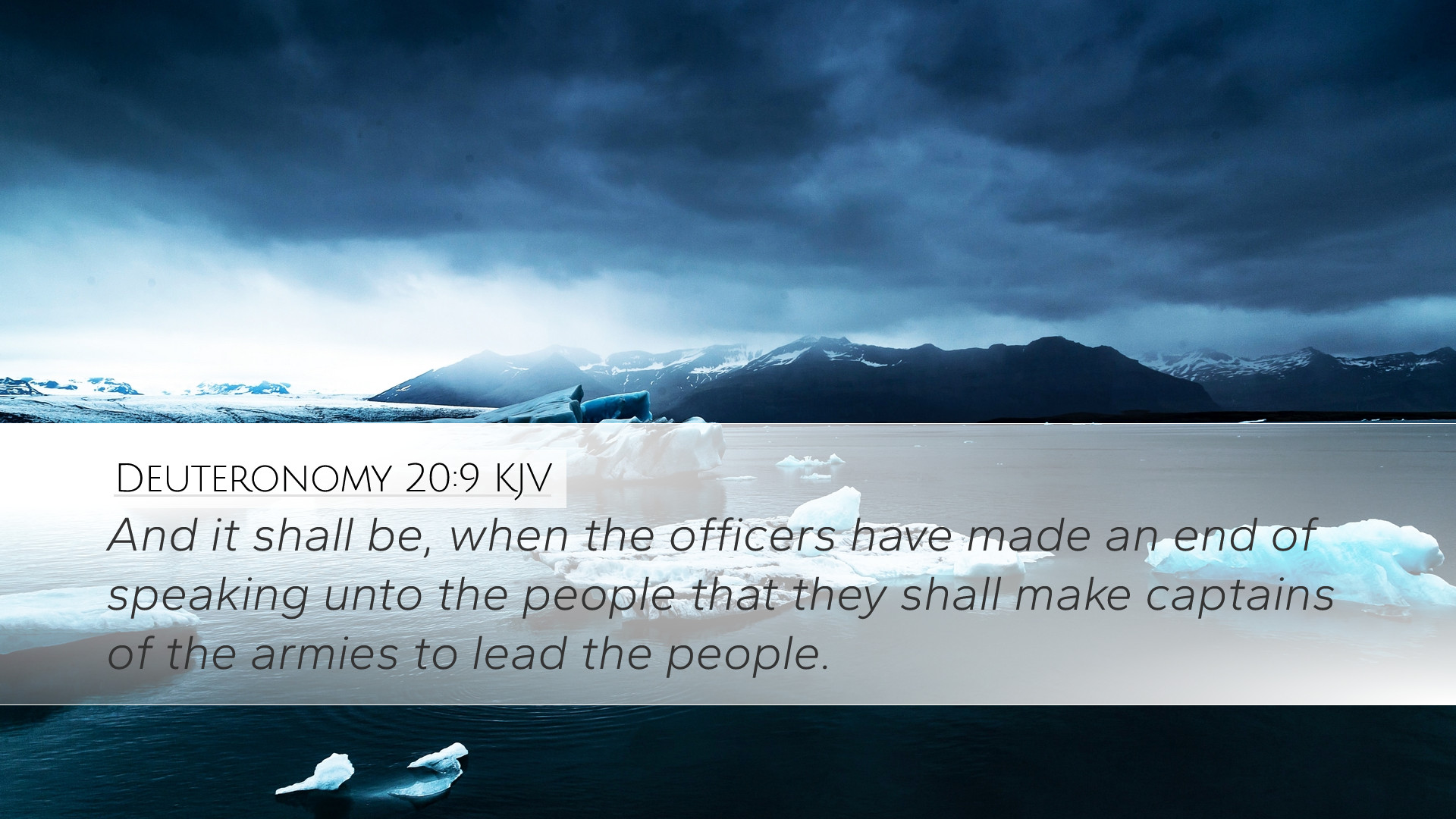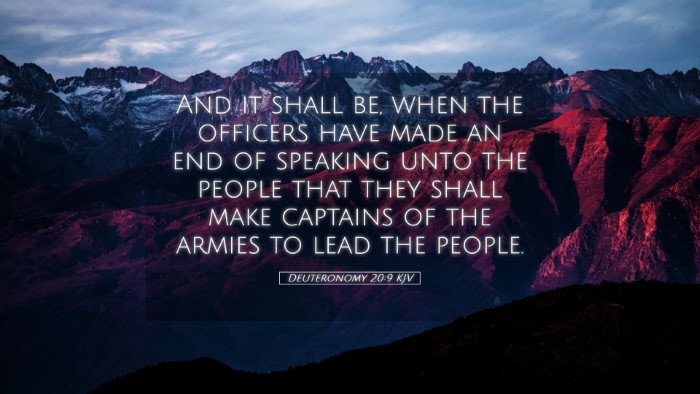Deuteronomy 20:9 - Biblical Commentary
Verse Text: “And it shall be, when the officers have made an end of speaking unto the people, that they shall make captains of the armies to lead the people.”
Context and Overview
The verse is situated within the broader context of Deuteronomy, which consists of Moses’ final discourses to the Israelites as they prepare to enter the Promised Land. This particular chapter addresses protocols for warfare, highlighting the importance of preparation, leadership, and the divine mandate behind their military endeavors.
Commentary Insights
Leadership in Warfare
Matthew Henry: In this commentary, Henry underscores the necessity of sound leadership during times of conflict. He notes that after the officers had communicated God’s commands and encouraged the Israelites, it was imperative to establish captains. The act of appointing leaders reflects the orderliness of God’s providence and the need for clarity and discipline in times of strife.
Divine Guidance and Authority
Albert Barnes: Barnes emphasizes the importance of divine guidance in the selection of leaders. He suggests that the officers were not merely chosen by human wisdom but were called and guided by God’s Spirit. In this manner, the leadership was not just administrative but also aspirational, committed to following God's will in their military endeavors.
Role of the Captains
Adam Clarke: Clarke elaborates on the function of the captains, suggesting that their role was pivotal in maintaining morale and instilling confidence among the troops. He explains that these captains were to communicate the officers' messages effectively, ensuring that the soldiers understood the significance of their mission and the assurance of God’s support.
Theological Implications
This verse carries weighty theological implications regarding authority, responsibility, and divine support in human undertakings, particularly in contexts that involve conflict or divine mission. The act of appointing captains underlines a critical principle in Scripture: that God equips and empowers leaders for His purposes.
Preparation and Readiness
The call for captains also serves as an admonition about preparedness. The officers were to ensure that the troops were ready both in spirit and strategy. This principle can be applied in various pastoral and educational contexts today, where leaders are tasked with preparing their communities for spiritual battles.
Practical Applications
-
Leadership Development: Just as Israel appointed captains, churches today must focus on developing leaders who are spiritually grounded and committed to divine mission.
-
Clear Communication: This verse emphasizes communication from leaders to their people. Pastors should strive to clearly articulate their visions and the scriptural mandate behind their missions.
-
Spiritual Warfare: Understanding the spiritual dimensions of leadership can help believers recognize that their battles are not solely physical but involve significant spiritual components.
Conclusion
In Deuteronomy 20:9, the hiring of captains demonstrates God’s desire for structured leadership in achieving His purposes. The responsibilities of these leaders go beyond mere administration, encompassing spiritual direction and motivational guidance. This foundational principle holds relevance for contemporary church leaders, fostering a community that is vigilant, prepared, and aligned with God’s intended mission.


